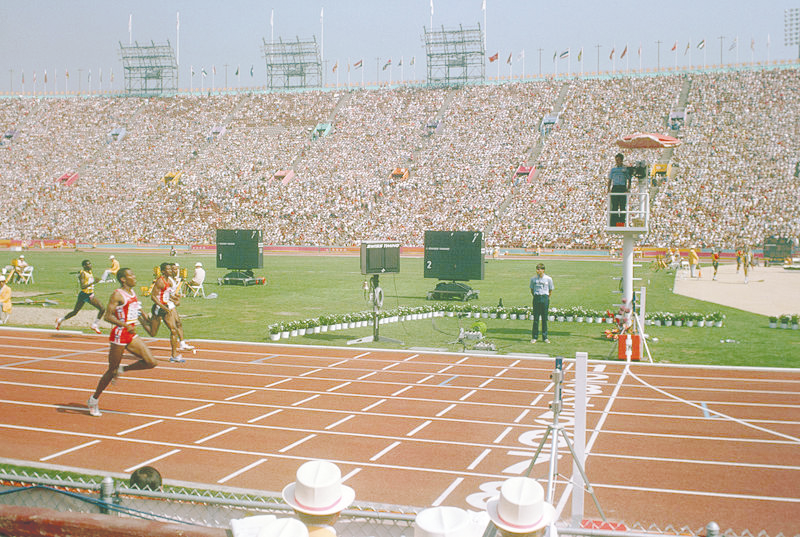On April 6th, 1896, at the turn of the century, a big event we know today was revolutionized: the Olympics. This was a tradition that had been carried from ancient Greece into modern times, which begs the question: what was the first Olympic game introduced into the Olympics?
The first ever Olympics started in 776 BC, with the first event being running. The first and only race included a short sprint with a distance of 180 meters. This expanded to a marathon-style race which was expanded much later on in 490 BC, known as the run of Pheidippides. The first running event included men who ran naked and barefoot on the track, which was made of sand. The beginning and ends of the tracks were etched lines into the sand. However, from the 5th century BC forward, permanent lines were made with stone slabs. When the distance of a race was longer than 180 meters, the runners would have to turn on the track by using a pole as their turning point. This sharp turn was at a 180 degree angle, making it difficult for the runners. When many athletes at one time were making this turn, this resulted in runners falling and cheating. Examples of cheating included turning before the pole and tripping their opponents.
Another event that was created in 776 BC was a running event known as the two to four-stade. This event included athletes who ran with their armor on. Most of the competitors were Greek soldiers who built speed and stamina for military service. This armor included a helmet, shield, and greaves, also known as shin guards. All together, the armor weighed anywhere from 50-60 pounds.
Although the games were held in Olympia, Greece from 776 BC to 393 AD, it took 1,503 years for the Olympics to return. The man who helped bring the Olympics back was a Frenchman named Baron Pierre de Coubertin, who presented the idea in 1894.
In the modern era, there are many different types of running events in the Olympic games. Overall, there are 44 events in the Track and Field portion of the Olympics. This makes it the most contested game in all of Olympic sports. The longest distance for running in the Olympics is the Olympic marathon, which is a total of 26.2 miles. The shortest running distance in the Olympics includes the 100 meter, having gone up from 60 meters in 1904.
Here are some fun facts about Olympic running:
- The most medals won by a female runner is held by Merlene Ottey-Page of Jamaica, holding three silver and six bronze medals.
- Usain Bolt became the first sprinter to ever win three consecutive gold medals in the 100-meter race.
- The Olympic 100-meter race determines who is the “fastest on earth.” Usain Bolt won with a time of 9.81 seconds in the 2016 Rio Olympics and owns the all-time record with a time of 9.58 seconds.
- John Taylor was the first African American man to win an Olympic gold medal, running the 400 meters in the 1,600-meter team medley relay.


